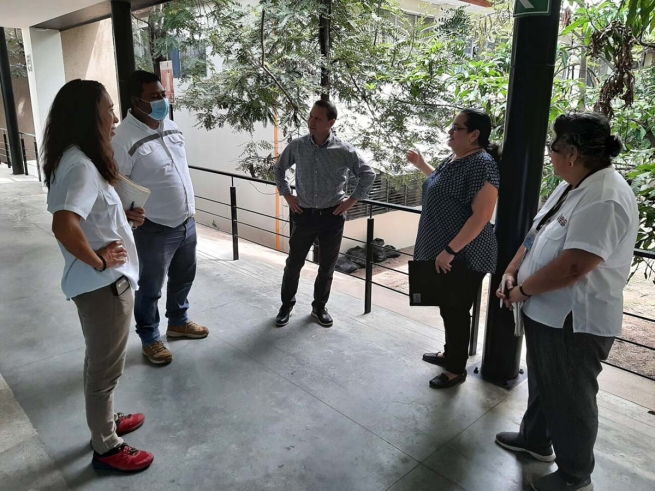The project, now completed, expanded and upgraded the facilities at Don Bosco University’s School of Rehabilitation Science and the equipment used to train medical rehabilitation professionals. It revolutionized the field of rehabilitation science across Latin America by constructing a new laboratory and research annex, modernizing technology, and extending the reach of Don Bosco University School of Rehabilitation Science through an expanded distance learning program.
The construction of the new building, which houses the Applied Research Center, allows for the exchange of information with professionals in the field at an international level as well as provides space for a new podiatry laboratory and other specialized practices. The program has already trained people from El Salvador, other countries in Central America, South America, Haiti, Angola and the Democratic Republic of the Congo. In 2022, the project was also able to train students in Uganda through the distance learning program.
With the new building, Don Bosco University will become the first university in El Salvador with a building built under LEED (Leadership in Energy & Environmental Design) parameters. The building has incorporated aspects related to energy efficiency, the use of alternative energies, the improvement of indoor environmental quality, the efficiency of water consumption, the sustainable development of open spaces on land and the selection of environmentally friendly materials
The annex building, which houses a laboratory and research building for people with mobility disabilities, won the Sustainable Construction Award granted by the Salvadoran Chamber of Construction (CASALCO) in the medium project category in 2021. Recently, Diego Aguirre-Herreria, the USAID architect who provides guidance and approves all construction plans for ASHA-funded projects, visited the new annex along with two USAID/El Salvador environmental officers. They were very impressed with the building and all the LEED features that were incorporated within the design.
“We are grateful to USAID for their funding and Don Bosco University for the successful conclusion of this project,” said Father Gus Baek, director of Salesian Missions. “The COVID-19 pandemic caused delays and cost overruns, but Don Bosco University ensured the project had a successful completion. Even procuring the equipment was a challenge for the university because of supply chain issues and price increases, but they made it work. The team showed perseverance in an uncertain time, and we are grateful for their hard work and dedication.”
In the final quarter of the project, Don Bosco University made strides in women empowerment and inclusion in STEM education. The Salvadoran electricity distribution company, Delsur, and Don Bosco University launched the Delsur Stem Academy training program to promote women in STEM careers and reduce the gender gap in the field.
The program motivates second- or third-year high school students, who are daughters of employees of the Del Sur company or who come from educational centers near their areas of influence, to study in areas of science and technology. Young women will have the opportunity to train in four major areas including robotics, electronics, mechanics and renewable energy. In addition, they will carry out field visits to the company to learn about the experience of women working in their areas of specialization.
Don Bosco University is one of the most prestigious institutions of higher education in the country, particularly in the technical and technological sectors. The university has close to 6,000 students enrolled and maintains a strong link to the local employment sector through research, technology transfer programs, continuing education courses and consultancy services. Degree programs are offered in engineering, social sciences, humanities, economics, technology and aeronautics, among others.
Source: Salesian Missions


